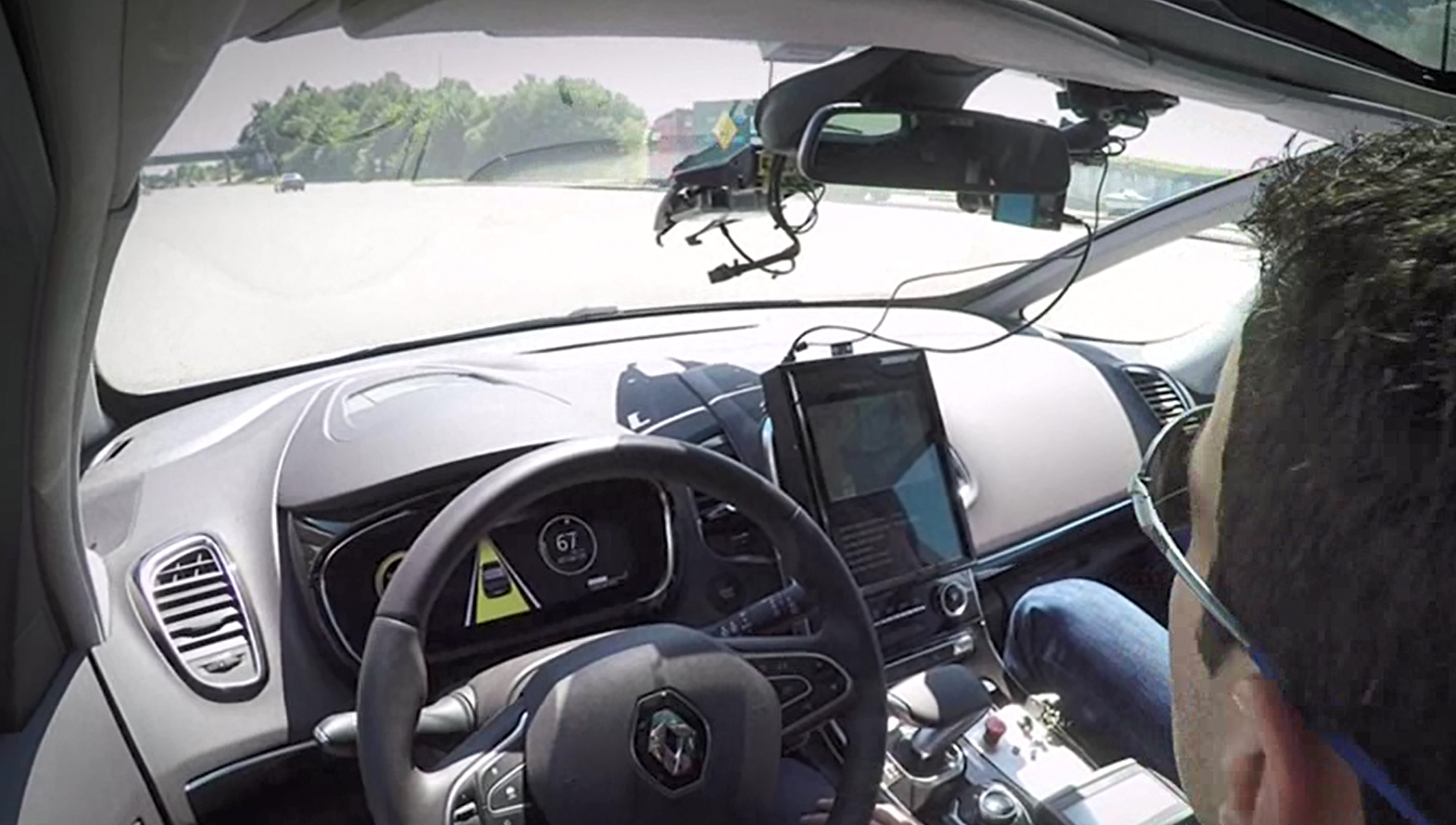Autopistas paves the way for autonomous vehicles in Spain
Abertis' spanish subsidiary works on the future road infrastructure to help coexistence of conventional and autonomous vehicles
Autopistas, an Abertis Group company, participates in the R&D European project INFRAMIX (Road Infrastructure ready for mixed vehicles traffic flows), which is preparing the future road infrastructure to facilitate the coexistence of conventional and autonomous vehicles.
This project involves a comprehensive simulation phase, and the results obtained will be evaluated in real sections of toll roads in Spain and Austria. In Spain, Autopistas is leading the project, which focuses on three crucial traffic scenarios in terms of traffic efficiency and safety: dynamic lane allocation, work zones and bottle necks.
The pilot program developed by Autopistas will be held on a 20-kilometres section in the Mediterranean Corridor (AP-7 toll road) near Girona. Cutting-edge technologies on detection and G5 communication should be implemented at the test scenario to demonstrate the three cases defined in the project.
In addition, as part of the ambition to maximize safety, Autopistas will also lead the definition of new types of signals and other physical elements to help the coexistence of conventional and autonomous vehicles, and will contribute to stablish new safety protocols for demonstrators.
Hybrid roads
Almost all the current initiatives for autonomous driving focus primarily on vehicles or drivers. This project, however, is addressed to find solutions for the design, update, adaption and test (both in simulations and in real) physical and digital elements on the road.
The goal is to create a model of toll roads that will allow a continuous, predictable, safe and efficient traffic through a hybrid road infrastructure capable of managing the period of transition of vehicles and which will serve as a basis for the future autonomous transport systems. Although the project focuses mainly on toll roads, the main results could be transferred to urban roads.
IThis is a multidisciplinary initiative involving 11 companies and European institutions, all of them leaders in the automobile and road industries, working on the coexistence of autonomous and conventional vehicles in roads. The program is within the framework of European Union’s Horizon 2020, promoted by the European Commission, which has funded the project with more than €4.5Mn.
Integration of the autonomous vehicle on Abertis’ toll roads
This project is strongly linked with the strategic lines of innovation and the Road Tech project of the Abertis Group. The company works for the adaptation of the new types of vehicles (electric, autonomous and connected) on toll roads network, always with the aim of improving road safety.
The Abertis Group, through its French subsidiary Sanef, is also developing a project with Renault to jointly shape the autonomous and connected car that could pass through toll roads smoothly passing through critical points, as the toll barriers and works zones.
Abertis promotes a specific programme dedicated to research and innovation, in order to fully understand the 'road tech' ecosystem today. The company collaborates with the world's pioneers in the field of technology applied to toll roads with a vision for the future of mobility.
Share
Related news
Abertis reinforces its leadership and reaches 100% of the Vallvidrera and Cadí tunnels in Catalonia
11 December 2025
•The Group, who already controlled 50.01% through its subsidiary Autopistas, completes the acquisition of the company that operates those tunnels.
Abertis extends its concession in Rio de Janeiro until 2047
12 November 2025
•The operator wins the tender to continue operating Autopista Fluminense with a new contract that includes an investment plan (aprox. 500 million euros over seven years) to improve mobility and a tariff adjustment as a result of the new investments, along with a 21-year extension.
•José Aljaro, CEO of Abertis, highlighted that “this operation represents a key opportunity for Abertis by extending a strategic asset and strengthening our position as a leader in Brazil, where we manage more than 3,000 kilometers of highways, a significant part of Abertis’ total network of 8,000.”
•Arteris, Abertis’ subsidiary in Brazil, has been the largest investor in the federal highway concession program in the last decade.

